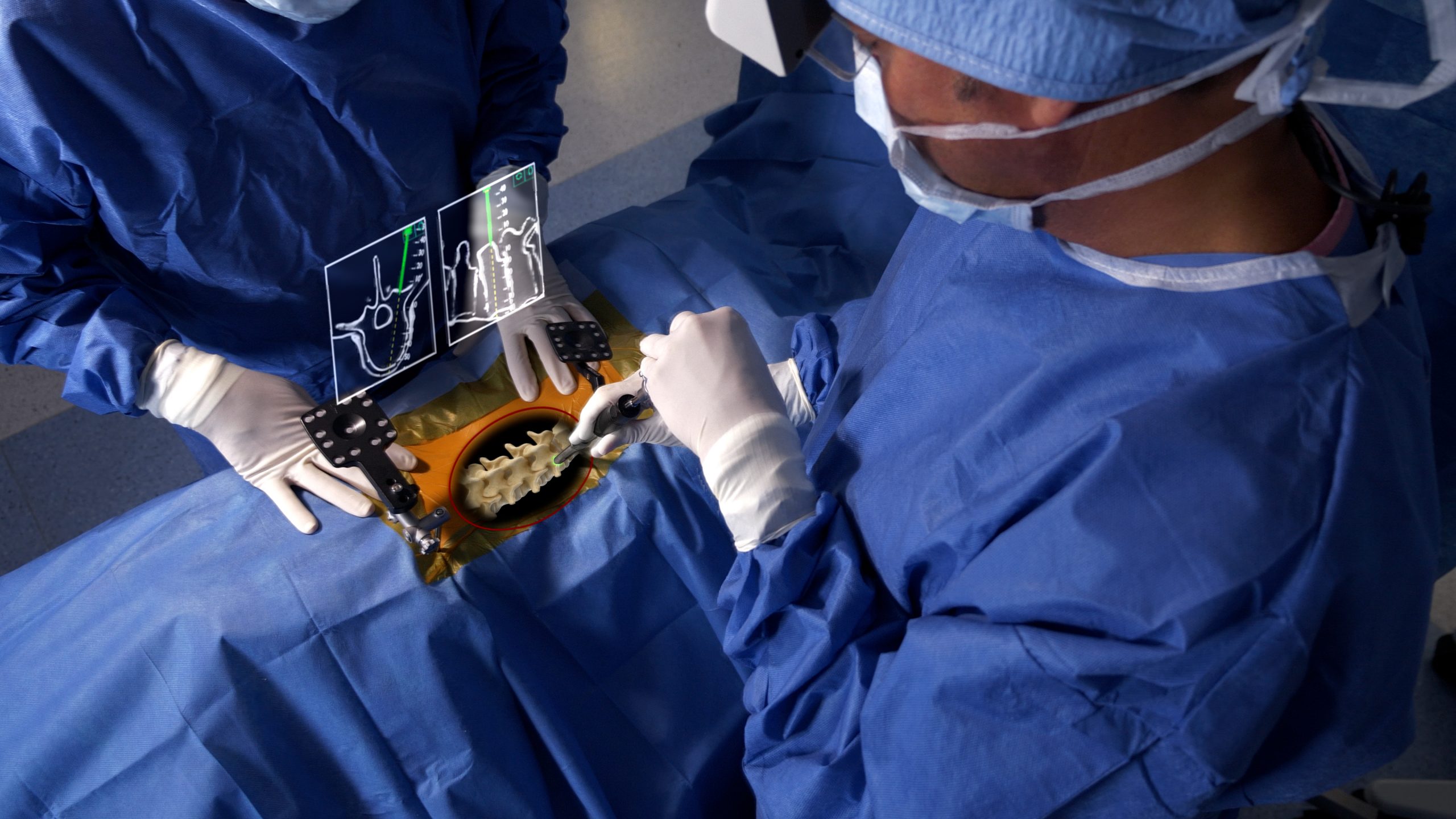The Value of Follow-Up Treatment with the Best Spine Surgeons in St Louis MO
The Value of Follow-Up Treatment with the Best Spine Surgeons in St Louis MO
Blog Article
Exploring the Reasons Behind Needing Back Surgical Treatment for Different Problems
The need for spine surgical treatment arises from a variety of problems that can severely harm an individual's high quality of life. The implications of these conditions expand far past immediate pain relief, welcoming additional exam into the intricacies of spine health and wellness administration.
Usual Spine Conditions
Usual back conditions incorporate a range of conditions that impact the vertebral column and its involved structures. Amongst the most widespread problems are degenerative disc disease, herniated discs, back constriction, and spondylolisthesis. These problems can lead to substantial pain and practical constraints, impacting the high quality of life.
Degenerative disc disease occurs when the intervertebral discs shed hydration and flexibility, leading to lowered disc elevation and increased back instability. Herniated discs develop when the internal gel-like product of a disc bulges or leaks through its external layer, typically compressing close-by nerves. Back constriction is defined by the constricting of the back canal, which can cause pressure on the spine cord and nerves. Spondylolisthesis involves the displacement of one vertebra over an additional, possibly triggering nerve compression and discomfort.
Various other problems such as scoliosis, characterized by an irregular side curvature of the spinal column, and osteo arthritis, which influences the aspect joints, likewise add to spine-related problems. Each of these problems might necessitate differing therapy techniques, consisting of conservative administration or surgical intervention, depending upon the extent and impact on the client's day-to-day activities.
Signs Indicating Surgical Treatment
Symptoms that might suggest the demand for spinal column surgical procedure can occur from the different back problems discussed previously. Individuals frequently experience persistent pain that does not improve with conventional treatments, such as physical treatment or drug. This discomfort can manifest as localized pain in the back or radiate to the limbs, recommending nerve participation.
Additionally, pins and needles, tingling, or weak point in the legs or arms can signal nerve compression, which may demand surgical treatment to stop additional neurological degeneration. An additional essential signs and symptom is loss of bladder or digestive tract control, usually indicative of cauda equina disorder, a medical emergency needing instant medical evaluation.
Sometimes, patients might additionally report substantial difficulty in executing daily tasks due to instability in the back or incapacitating discomfort. These functional restrictions, in addition to progressive symptoms, require a comprehensive assessment by a spinal column expert.
Eventually, when conservative procedures fall short to minimize signs and symptoms and top quality of life is significantly impacted, surgical treatment might be taken into consideration to recover feature, relieve pain, and protect against lasting difficulties. It is important that individuals experiencing these signs and symptoms look for specialist clinical advice promptly.

Non-Surgical Therapy Alternatives
Numerous non-surgical therapy alternatives are available for individuals experiencing spine-related problems, aiming to minimize pain and boost functionality without the demand for invasive procedures. These therapies can be tailored to the specific problem and intensity of signs and symptoms.
Physical treatment is frequently a first-line technique, concentrating on reinforcing core muscular tissues, improving adaptability, and improving overall spine health. Hands-on therapy techniques, such as chiropractic care adjustments, can likewise provide relief by decreasing and straightening the back stress.
Medicines, consisting of non-steroidal anti-inflammatory medications (NSAIDs) and muscle mass depressants, may be prescribed to take care of pain and swelling. Additionally, corticosteroid injections can provide targeted relief to affected areas, specifically for conditions like herniated discs or back constriction.

Alternate therapies, such as acupuncture and massage therapy, have actually gained popularity for their possible to decrease pain and promote healing. Way of living adjustments, including weight management and ergonomic adjustments, play an essential duty in long-term spine health.
For some individuals, spinal decompression treatment or transcutaneous electric nerve excitement (TENS) may use relief by reducing stress on spine nerves and boosting nerve function, respectively. Jointly, these non-surgical options provide an extensive approach to taking care click here for more of spine-related conditions.

Advantages of Spinal Column Surgery
While non-surgical therapy options can properly manage several spine-related problems, there are circumstances where surgical treatment becomes essential to achieve optimum end results. Among the main benefits of spine surgical procedure is the potential for significant pain alleviation. Problems such as herniated discs, why not try here spinal stenosis, and degenerative disc condition can lead to debilitating pain that might not reply to traditional therapies. Surgical treatment can straight address the resource of the pain, offering long-term relief.
In addition, spinal column surgery can restore functionality and enhance lifestyle. Lots of clients experience improved mobility and decreased limitations in day-to-day tasks adhering to effective procedures. This restoration of function is important for individuals seeking to go back to work, involve in recreational tasks, or merely appreciate day-to-day jobs without discomfort.
In addition, back surgical procedure can protect against additional complications linked with neglected spine problems. By resolving concerns proactively, patients might stay clear of much more extreme wellness issues that could develop from progression of their back condition. On the whole, the benefits of back surgical treatment extend past discomfort relief, encompassing enhanced flexibility, improved lifestyle, and the avoidance of future issues, making it a vital option for many individuals facing substantial spine-related obstacles.

Recuperation and Rehabilitation Process
The recovery and rehabilitation process following back surgery is important for ensuring optimal outcomes and improving the overall lifestyle for patients. Reliable healing begins immediately after the treatment, focusing on pain injury, monitoring, and mobility care - best spine surgeons in st louis mo. Medical care suppliers typically advise a combination of physical therapy, medication, and progressive return to daily tasks to assist in healing
Individuals are frequently advised to follow an organized recovery program customized to their specific surgery and individual needs. anchor This may include targeted exercises to reinforce the core and back muscle mass, boost flexibility, and recover functionality. Adherence to the suggested rehab protocol is important, as it can significantly reduce the risk of complications and advertise faster recovery.
It is additionally essential for people to keep open interaction with their health care group throughout the healing procedure. Regular follow-up consultations enable the surveillance of development, modifications to rehabilitation plans, and dealing with any worries that may emerge. Inevitably, a detailed healing and rehabilitation strategy not just aids in physical healing however also supports psychological well-being, encouraging individuals to restore freedom and return to their favored tasks with confidence.
Final Thought
In verdict, recognizing the factors for spine surgical treatment is necessary in resolving debilitating conditions that affect high quality of life. Eventually, spine surgical treatment can bring back feature and boost total well-being, emphasizing the significance of prompt assessment and treatment for affected individuals.
The requirement for spinal column surgical treatment occurs from a range of conditions that can badly hinder an individual's quality of life. The effects of these conditions extend much past prompt pain alleviation, inviting more evaluation into the intricacies of spinal column health and wellness management.
Signs that might suggest the need for spinal column surgical treatment can develop from the various back conditions talked about formerly.Moreover, spine surgical treatment can stop additional problems associated with untreated spinal problems.In conclusion, understanding the factors for back surgery is necessary in attending to incapacitating conditions that impact quality of life.
Report this page